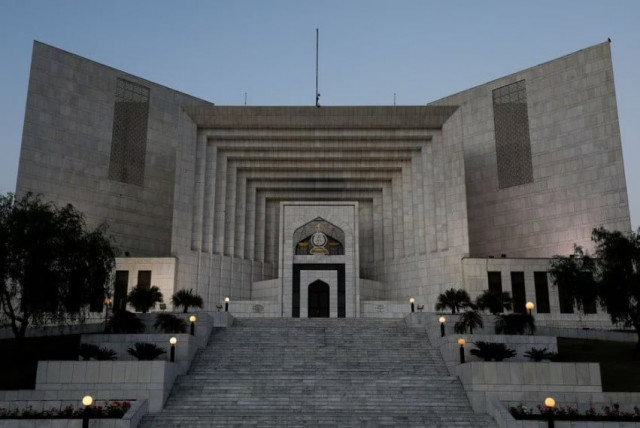SC to hear NAB amendments case on May 16
CJP Bandial to head three-member bench for crucial case

The Supreme Court (SC) will be hearing the case regarding the National Accountability Bureau (NAB) amendments on May 16.
A three-member bench, headed by Chief Justice of Pakistan Umar Ata Bandial and comprising Justice Ijazul Ahsan and Justice Mansoor Ali Shah will preside over the hearing.
This case is crucial as it involves the amendments made to the National Accountability (Second Amendment) Act, 2022 by the Pakistan Democratic Movement (PDM) government that came to power in April last year.
The PDM government's move to approve these amendments was heavily criticised by the Pakistan Tehreek-e-Insaf (PTI), which termed it an attempt to curtail the powers of the anti-graft watchdog.
In July last year, the federal cabinet also passed the National Accountability (Third Amendment) Bill, 2022, which further restricted the organisation's role in corruption cases involving over Rs500 million and revoked the president's authority to appoint judges of the accountability court.
The NAB amendment case is not new to the apex court, as the previous hearing was held on March 16, 2023.
During the hearing, CJP Bandial said that the amendments made to the NAB ordinance would slide Pakistan 100 points down in the world corruption index.
Justice Ahsan had also remarked that the amendments were carried out only to benefit the very lawmakers who legislated on it.
Moreover, a report submitted by the graft buster to the Supreme Court revealed that the amendments made to the National Accountability Ordinance (NAO) 2000 by the Pakistan Muslim League-Nawaz (PML-N) led coalition government ended up benefiting over 90 per cent of cases, including high-profile ones, that NAB was dealing with, whether at the inquiry, investigation, or trial stage.
NAB had submitted the report to the apex court, pertaining to the details of cases of public office-holders, including political leaders, which were to be affected under the new amendments in the NAB law.

1724319076-0/Untitled-design-(5)1724319076-0-208x130.webp)

















COMMENTS
Comments are moderated and generally will be posted if they are on-topic and not abusive.
For more information, please see our Comments FAQ